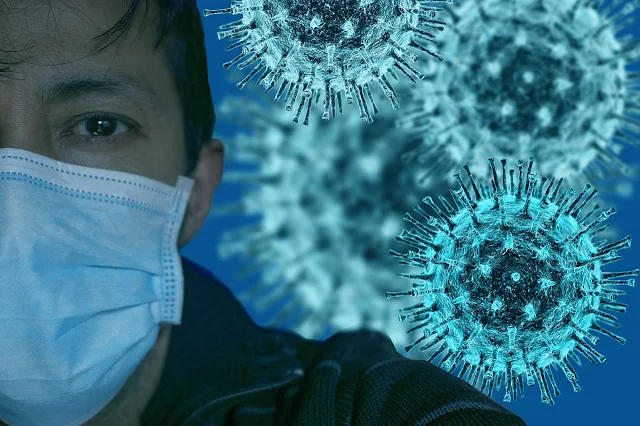What is HMPV?
Human metapneumovirus (hMPV) is one of the viruses that causes the common cold (upper respiratory infection). It usually makes people only mildly sick, but it can make some people very sick.
The virus belongs to the Pneumoviridae family of viruses, along with respiratory syncytial virus (RSV). It was first identified in 2001 and has been spreading among people for many decades. It is found around the world.
How Does It Spread?
First identified in the Netherlands in 2001, HMPV spreads through direct contact between people, or when someone touches a contaminated surface. It spreads like other common cold viruses do, through infectious respiratory particles that spread through the air from a sick person to others. This means a person can catch the virus when they are close to a sick person or sharing a closed space with them. It can also enter the body by touching contaminated surfaces like doorknobs or handles and then touching the eyes, nose or mouth.
A surge in cases of the flu-like human metapneumovirus (HMPV) in China has raised fears of another Covid-style pandemic. Images of hospitals overrun with masked patients have circulated widely on social media, but health experts say HMPV is not like Covid, and point out it has been around for many years. They say China and other countries are simply experiencing the seasonal increase in HMPV typically seen in winter.
What Are The Symptoms?
The virus leads to a mild upper respiratory tract infection for most people.
It is usually almost indistinguishable from flu.
Symptoms for most people include a cough, a fever and blocked nose.
The very young, including children under two, are most vulnerable to the virus.
It also poses a greater risk to those with weakened immune systems, including the elderly and those with advanced cancer,
..according to Hsu Li Yang, an infectious diseases specialist in Singapore.
If infected, a "small but significant proportion" of immunocompromised people can develop more severe disease where the lungs are affected, with wheezing, breathlessness and symptoms of croup.
"Many will require hospital care, with a smaller proportion at risk of dying from the infection," Dr Hsu said.
Why Are HMPV Cases Rising In China?
Like many respiratory infections, HMPV is most active during late winter and spring.
This is because viruses survive better in the cold, and can pass more easily from one person to another as people spend more time indoors with closed windows.
In northern China, the current HMPV spike coincides with low temperatures that are expected to last until March.
Many other countries in the northern hemisphere - including the US - are also experiencing a growth in rates of HMPV, said Jacqueline Stephens, an epidemiologist at Flinders University in Australia.
"While this is concerning, the increased prevalence is likely the normal seasonal increase seen in winter," she said.
The World Health Organization (WHO) is monitoring rates of flu-like illness across the Northern hemisphere, and said it has not received any reports of unusual outbreak patterns in China or elsewhere.
It said Chinese authorities have confirmed that the health care system is not overwhelmed and there have been no emergency declarations or responses to date.
Is There Any Chance Of Another Covid-like Pandemic?
Fears of a Covid-style pandemic are overblown, experts say, noting that such events are typically caused by new viruses, which is not the case with HMPV.
The disease is already globally present and has been around for decades. This means people across the world have "some degree of existing immunity due to previous exposure", Dr Hsu said.
"Almost every child will have at least one infection with HMPV by their fifth birthday and we can expect to go onto to have multiple reinfections throughout life," said Paul Hunter, a medical professor at University of East Anglia in England.
"I don't think there are currently any signs of a more serious global issue."
However, health officials recommend taking sensible precautions to avoid catching HMPV and other respiratory illnesses:
- Wearing a mask in crowded places
- Avoiding crowds where possible if you are at higher risk of more severe illness
- Washing your hands regularly
- Disposing of tissues securely
People may also wish to consider getting vaccinated against other respiratory conditions such as the flu.
Generally, pregnant women and adults aged 75 to 79 are advised to get the respiratory syncytial virus (RSV) vaccine.
RSV is a common infection that causes coughs and colds, but can sometimes be serious for babies and older adults.

.png)
